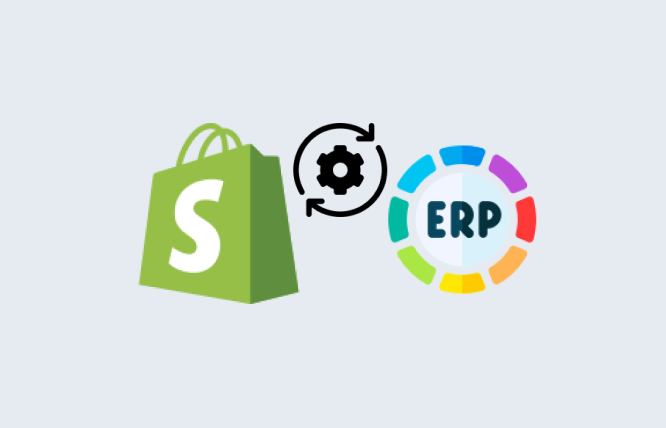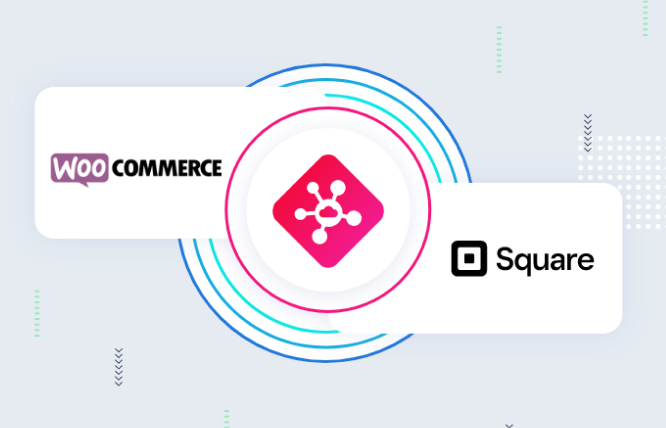Introduction
Struggling with the huge load involved with managing your Shopify store? Try reducing your life complexity with Shopify ERP integration. Let’s discuss everything you need to know about ERP integration and its benefits on Shopify.
The e-commerce space has been broadly ablaze. Last year, revenues of e-commerce retail sales amounted to a breathtaking $5.7 trillion, according to experts who estimate it to grow by 2027 up to $8.1 trillion. But with this explosive growth comes a hidden challenge: simplifying your business process amid growing complexity.
Now, visualise a large stock across numerous warehouses when orders are constantly being delayed, and you are fighting to stay up on the data waves. This is an unforgiving fact for many entrepreneurs who go in for e-commerce business. The good news? There’s a powerful solution: Shopify’s ERP integrations.
The Challenge of Managing a Growing E-commerce Business
E-commerce is becoming a powerful engine of growth, but it seems to be intensifying as well. Since you need to deal with tons of data, Managing a successful online store is harder than ever. It requires juggling multiple tasks: writing off, order procurement, customer services, marketing campaigns, and financial statements. These tasks are likely to cause overload, especially for small companies experiencing a market increase.
In this instance, keeping accurate data across different challenges is a big challenge. Since manually handling products is tedious, reconciling financial records will become a constant struggle due to scattered data. This is where Shopify ERP integration will help you to have a unified and constructive e-commerce operational process through integrating systems.
What is ERP and How Does it Streamline E-commerce Operations?
ERP is short for “Enterprise Resource Planning” It’s an all-inclusive business management system that crosses over all departments and functional aspects of an organisation. It can be referred to as a central hub that links between different operations of the company and makes communication between key departments easier and without interruption.
Well, in the e-commerce industry, through Shopify ERP integration, you can get to the stage of operating the e-commerce platform with the unifying components that bring all the functions of the enterprise under a single system. Here’s how:
Real-time Inventory Management
No more stockouts or overselling. ERP helps you maintain accurate inventory levels across your online store and warehouses.
Automated Order Fulfillment
Orders flow seamlessly from Shopify to your ERP, triggering efficient picking, packing, and shipping.
Unified Financial Reporting
You gain a complete view of your finances with all sales data, inventory costs, and other financial information in one place.
Improved Customer Experience
It also enables customers to have real-time access to product reports, seamless checkout, and timely dispatch notifications to ensure happier customers.
The Benefits of Integrating Shopify with ERP
Integrating Shopify with an Enterprise Resource Planning (ERP) system offers several benefits for businesses, including:
Automata on Autopilot: It frees you from managing manual tasks. Inventory, order fulfilment, and reports run smoothly, saving you time and minimising errors.
Real-Time Knowledge: Your connectivity lets you know everything. All platforms are synced together with regards to inventory levels, order statuses, and customer data to provide complete business transparency.
Data Makes Decisions: You could make informed choices to fuel growth. Consolidated data from Shopify and your ERP offers valuable insights for optimising inventory, pricing, and marketing strategies.
Scalability for the Future: Shopify ERP integration will handle increasing sales volume and product lines with ease.
Enhanced Financial Reporting: In a single glance, you can review your financial situation. Unify sales data, inventory costs, and other relevant financial figures for insightful reporting and data-driven decisions.
Shopify Integration with NetSuite: A Powerhouse for Streamlined E-commerce
NetSuite, a top cloud-based ERP system, integrates strongly with Shopify, a well-known e-commerce platform. This mix opens up a wealth of advantages for companies aiming to simplify operations, obtain valuable insights, and ignite substantial growth.
Why Choose NetSuite for Shopify Integration?
Shopify NetSuite integration caters specifically to the needs of growing businesses, providing multiple features to manage all aspects of your operations, including:
- In-depth Inventory Management and stock tracking.
- Automated Order Fulfillment
- Financial tasks Management
- Customer Relationship Management (CRM)
How to Perform Shopify ERP Integration
Managing a Shopify store alongside separate business systems can feel overwhelming. Learn the key steps to perform Shopify ERP integration. Simplify your operations, free up time, and fuel your brand’s growth by following these steps:
Define Your Needs
- What functionalities do you need from the ERP?
- Which data needs to flow between Shopify and the ERP?
Choose Your Plan
- Pre-built apps: Easy setup, but limited customisation.
- APIs: It requires more control and coding expertise.
- Middleware platforms: Bridge complex systems for ultimate flexibility.
- Outsourcing: Outsource the Shopify ERP integration to a reputed company.
Select Your ERP Software
- Consider features like inventory management, order processing, scalability, and budget.
Configure & Test
- Map data fields and define workflows for orders, inventory, and customers.
- Rigorously test the integration for accuracy and functionality.
Launch & Optimise
- Deploy the integration and provide extensive training to your team.
- Monitor performance and refine processes for a seamless workflow.
Streamline your business, free up time, and focus on growth. You may certainly conquer the chaos with Shopify ERP integration!
The Right ERP for the Shopify Store
When selecting the appropriate ERP / business management solutions for your Shopify store, take into account the following aspects:
- Go for a cloud-based ERP system that can easily be integrated with Shopify, either through the available functions or through APIs.
- The ERP has to be scalable and should be designed such that it can handle a high level of demand in terms of increasing order sizes, huge amounts of inventory, and customer data.
- Analyse how the ERP systems work in performance standard areas like inventory management, order processing, financial statement output customer relationship management, and CRM.
- The expenses in the beginning, regular maintenance charges, and the customised and support-added charges should also be taken into account.
- Pick a system that can be either ERP software or custom mobile app development that is easy to use and understandable for your team members; conversely, this will help to cut down on the need for exhaustive training, thereby enhancing the adoption rate.
- You can manually make a comparison analysing these factors to cope with your own needs by checking the ERP system components available on the market.
Who Can Help with Shopify ERP Integration?
Successfully implementing Shopify ERP integration requires expertise in both Shopify and the chosen ERP system. Here are your options for navigating this process:
However, the best would be to cooperate with a trustworthy e-commerce development company that provides access to the domain of developers with such skills and qualifications. They will take care of the technical aspects of integration and outline an ERP solution that will be ideal for you.
Giant Shopify Plus agencies specialise in working with high-volume merchants on the Shopify Plus platform. Many offer Shopify ERP integration services, leveraging their in-depth understanding of the platform and its abilities.
Another alternative is to forge a strategic alliance with web and mobile app developers who focus on integrating their products with Shopify. They can be competent in customising services to meet all ERP integration-specific needs.
Important Considerations
When choosing a partner, prioritise their past experience with Shopify ERP integrations, particularly for your chosen ERP system. It’s better to cross-check and read the testimonials.
Clearly define your project scope and desired outcomes. This will reduce the chances of errors.
Cost Factor: Shopify ERP integration costs may fluctuate based on your project’s complexity, the ERP system chosen, and the rates of the development team.
Futurbyte is one of the many technology consulting firms that specialise in helping businesses with Shopify ERP integration. We have expertise in both Shopify and ERP systems, which makes us well-equipped to streamline your e-commerce operations.
Here’s how Futurbyte or a similar consulting firm can assist with Shopify ERP integration:
- Futurbyte’s ERP integration experts navigate complexities & automate workflows.
- We analyse & tailor solutions for your Shopify & ERP.
- Our professionals also handle configuration, data mapping, & workflow optimisation for seamless integration.
- We thoroughly test & validate before launch to ensure a smooth-running Shopify ERP system.
Conclusion: Reap the Rewards of a Unified E-commerce Operation
To sum it up, the collaboration with a consulting company (Futurbyte) for the Shopify ERP integration can bring a whole new level of fulfillment to your online business.
Moreover, when you integrate your Shopify store with your ERP system, you simplify complex processes, get data accuracy, ultimately improve customer experience, and acquire important insights for business growth. Remember, only experts and well-supported partners can enable you to optimise the opportunities available to your e-commerce business.
Also Read:Hire Someone to build Shopify Store
Frequently Asked Questions
Shopify ERP integration ties Shopify with Enterprise Resource Planning (ERP). This allows the convergence of all the e-commerce operations as a unified hub and includes inventory, orders, finances, and customers.
Choosing the right ERP: Consider factors like features, scalability, budget, and integration capabilities.Complexity of integration: The process can be complex, depending on the chosen ERP system and your specific needs.Cost: Integration costs can vary based on project complexity, ERP system, and development team rates.
If you are an e-commerce business that is experiencing difficulties with manual processes, data siloes, and lack of visibility, then Shopify ERP integration could be the very thing that opens the doors for you to success. It uncomplicates operations, increases the level of accuracy, augments the customers’ experience, and collects valuable data for growth.
Yes, we are the enterprise technology solutions provider aiming at simplifying the integration of complex business processes and infrastructure. Our service can assist you in unifying different systems, saving data safely in large data sets, and supplying a framework for scalability as your organisation grows.
Our developers have expertise in building mobile apps for iOS and Android. Our web and application developers work closely with you to get in the picture of you, decide on the interfaces with user-friendly design, and develop robust functionalities to give life to your app.
Absolutely! We offer comprehensive web development services, including building custom e-commerce platforms; we strive to undertake custom e-commerce platforms with client-specific business needs in regard to functionality. Whether you are looking for a stand-alone storefront or a complex marketplace, our services will be your best collaborator to bring your idea to life.
Have questions or feedback?
Get in touch with us and we‘l get back to you and help as soon as we can!




